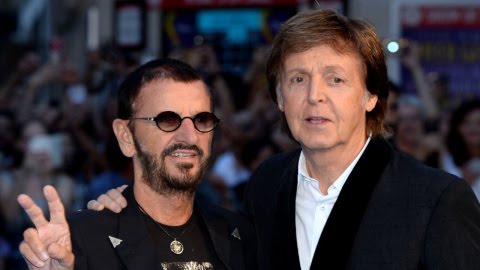The relationship between The Beatles and Yoko Ono is one of the most fabled in music history. Ever since the Fab Four disbanded in 1970, rumours have swirled surrounding John Lennon’s relationship with the multi-talented Japanese artist, as people have desperately attempted to answer the question, did Yoko Ono break up The Beatles?
The answer, of course, is no. Lennon’s romantic relationship may have exacerbated the bubbling tensions in the band, as the songwriter found himself gravitating towards artistic collaboration with Ono over his bandmates, but it was just one of many contributing factors. From Paul McCartney’s attempts to take over creatively to the after-effects of Brian Epstein’s death, there were several strains that would eventually lead to the demise of the Fab Four.
Though Ono’s presence may have pulled Lennon further away from his bandmates into the art world and the Plastic Ono Band, it also provided him with a new muse in their later years. In fact, for one particular song on the band’s second to last album, Abbey Road, they had Ono to thank for providing the initial inspiration.
On side two of Abbey Road, after the sunlit shimmers of ‘Here Comes the Sun’ subside, an electric harpsichord pushes the record into weirder realms. ‘Because’ featured a pioneering use of the Moog synthesiser alongside some eerie harmonies and lyrics about love and being turned on or reduced to tears by the beauty of the world.
It was one of the strangest songs on Abbey Road, and they had Ono to thank for it. One day, the artist was sat by the piano playing Beethoven when inspiration struck Lennon. “Yoko was playing Moonlight Sonata on the piano,” he recalled to David Sheff in All We Are Saying, “She was classically trained.”
Lennon requested that she play the same chords but in reverse and then wrote ‘Because’ and “around them”. Though they’re hidden under harpsichords and harmonies, the influence of ‘Moonlight Sonata’ is palpable in ‘Because’. It also adds to the eerie atmosphere of the song, turning a chord progression that most of us are familiar with into something slightly strange.
Lennon then penned the lyrics, which he suggested spoke for themselves. “They’re clear,” he said, “No bullshit. No imagery, no obscure references.” They detailed the high winds, the blue skies, and the resulting awe of the protagonist. “Love is old, love is new,” the trio harmonise, “Love is all, love is you.”
Even Paul McCartney could feel the influence of Ono beyond the backwards melodies into the words that accompanied them. “I wouldn’t mind betting Yoko was in on the writing of that,” he once told Barry Miles in Many Years From Now, “It’s rather her kind of writing: wind, sky and earth are recurring, it’s straight out of Grapefruit and John was heavily influenced by her at the time.”
Though Lennon didn’t specify whether Ono had helped him with the lyrics or not, she certainly had been in on the writing of ‘Because’ in some way. If Lennon hadn’t heard her playing ‘Moonlight Sonata’ on the piano, he might never have had the idea to reverse those chords and put them through a synthesiser and a harpsichord, creating one of the most uncanny tracks not only on Abbey Road but in the band’s entire catalogue.



